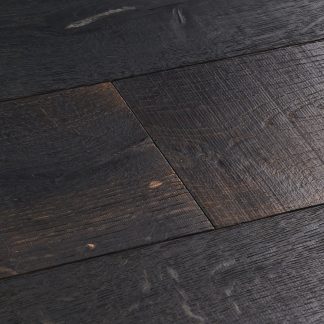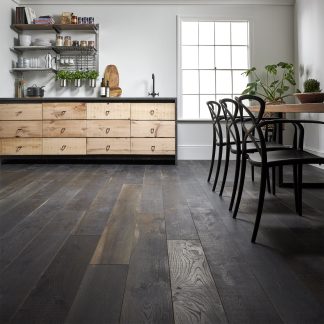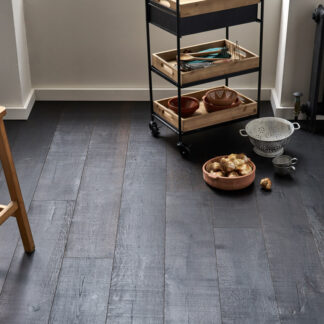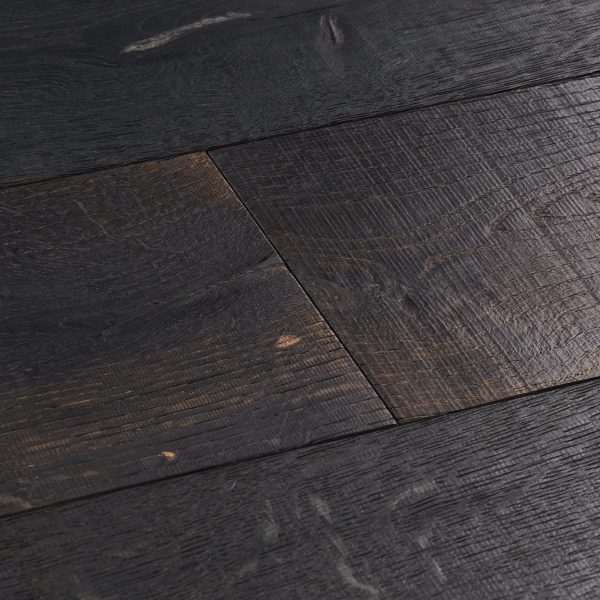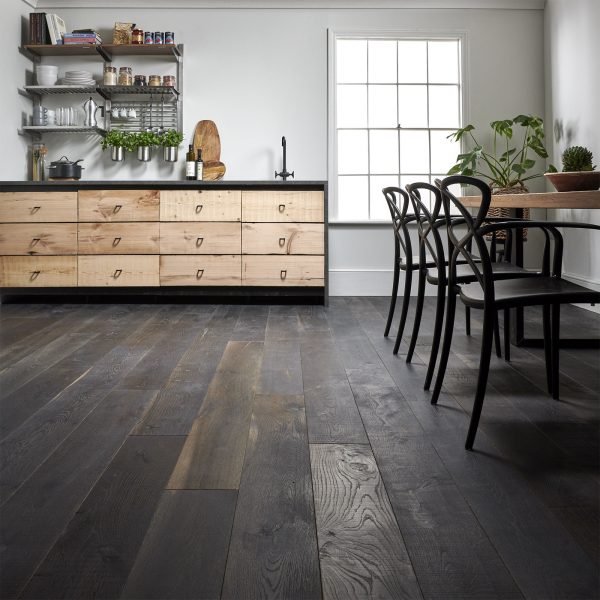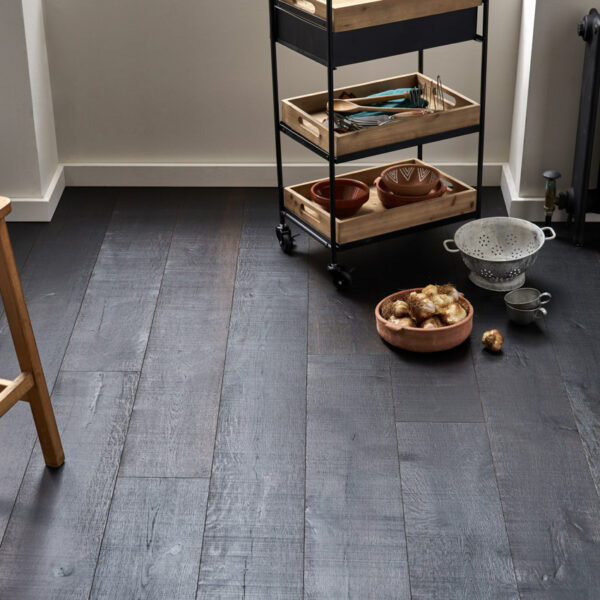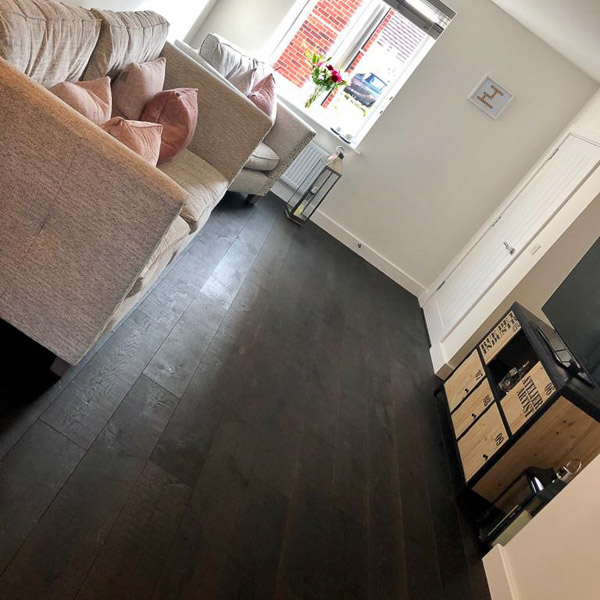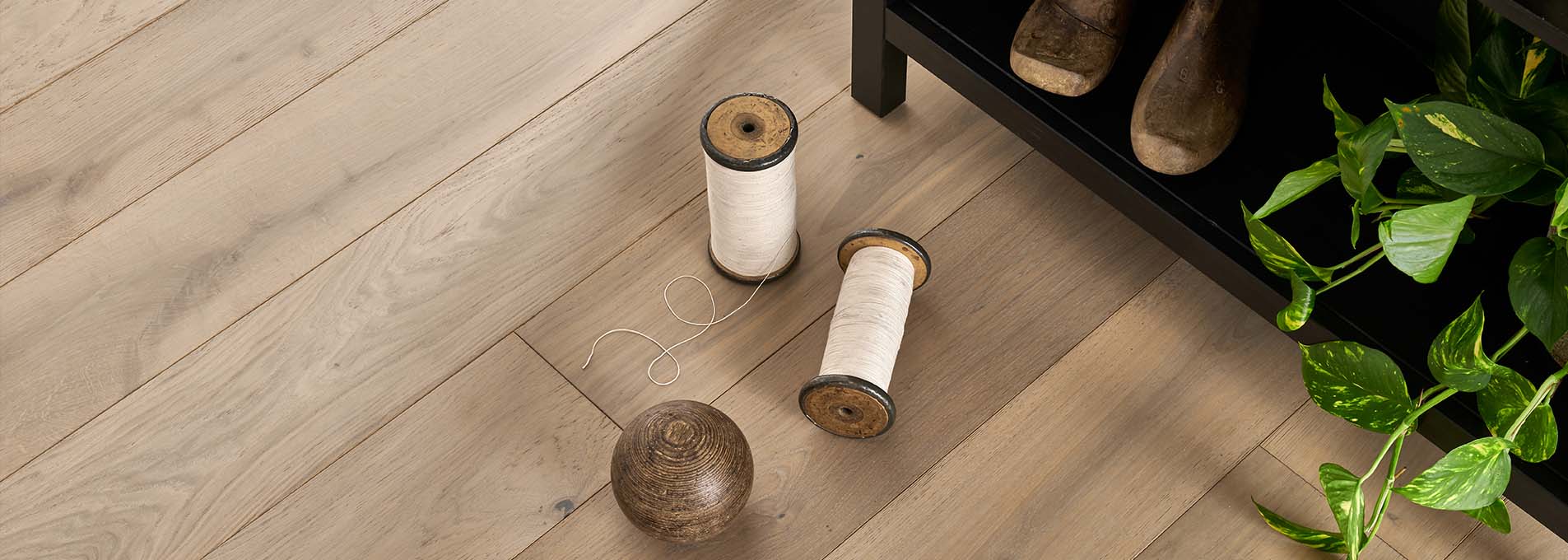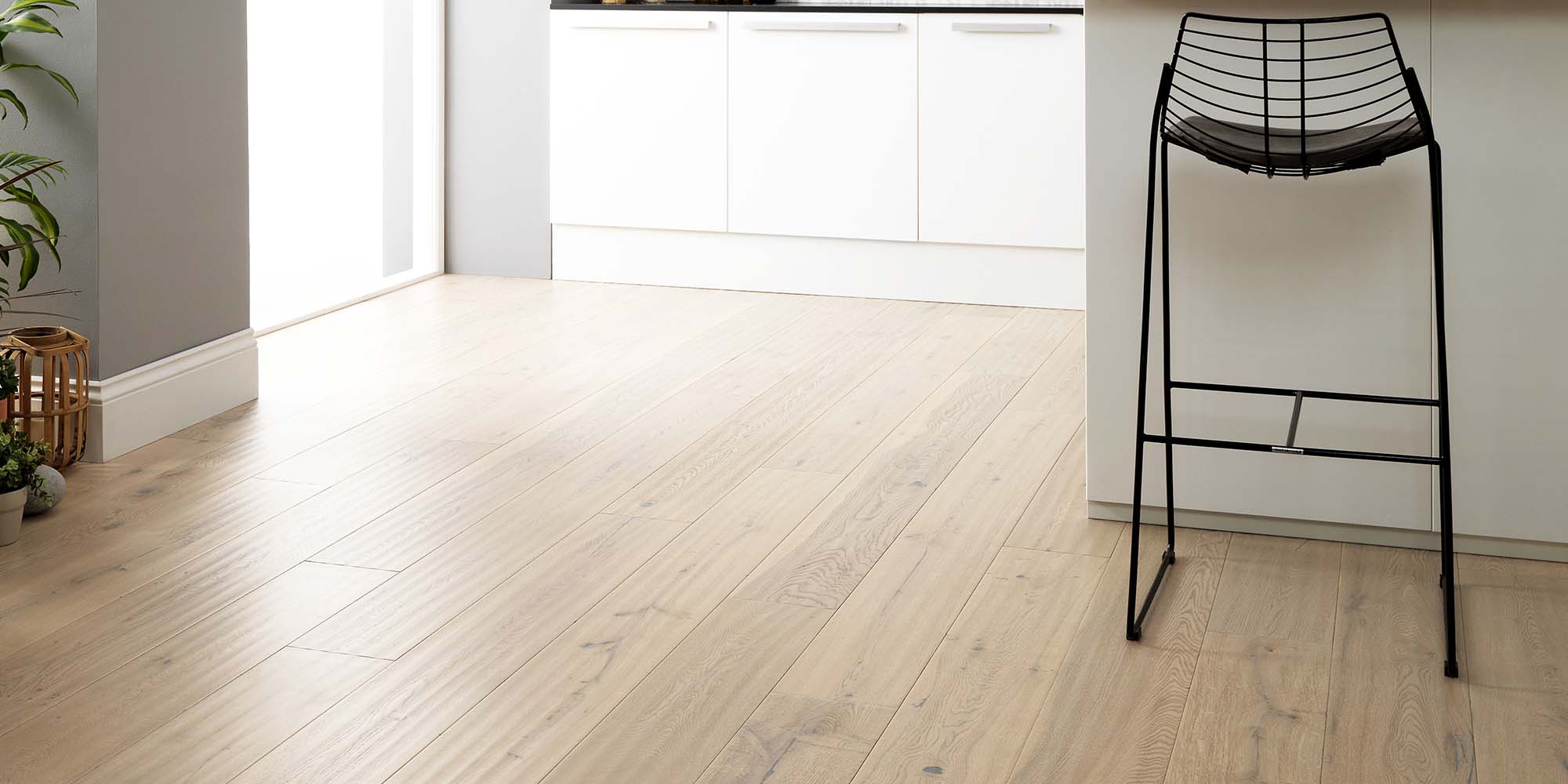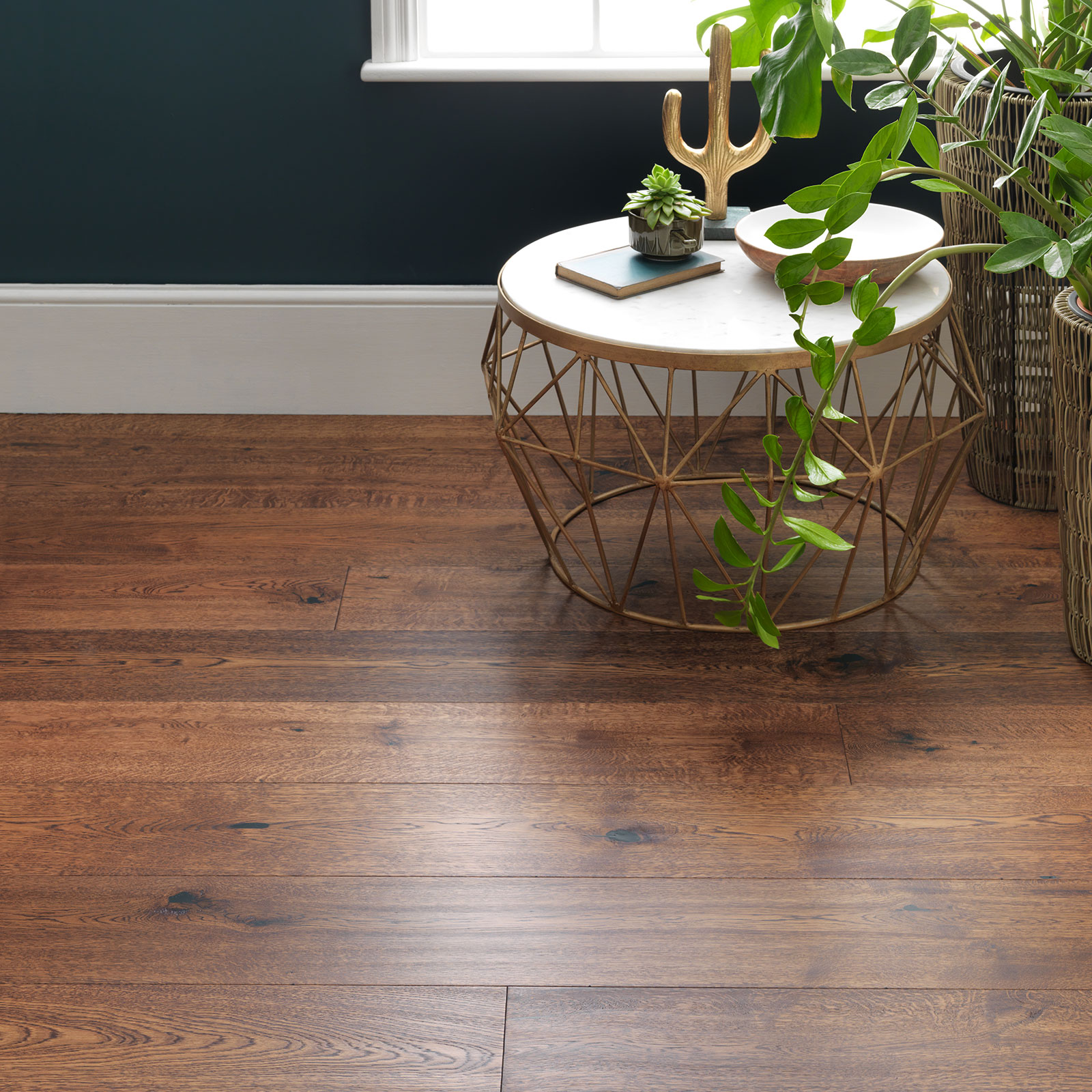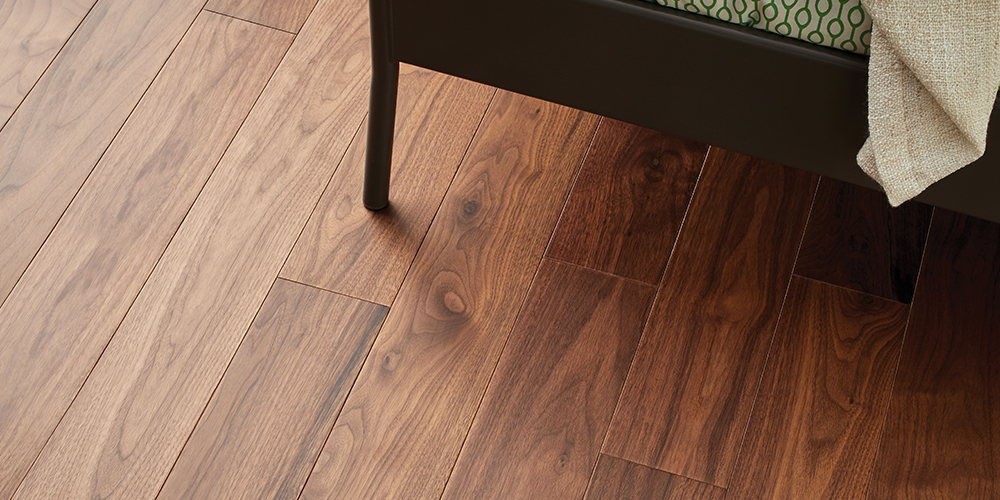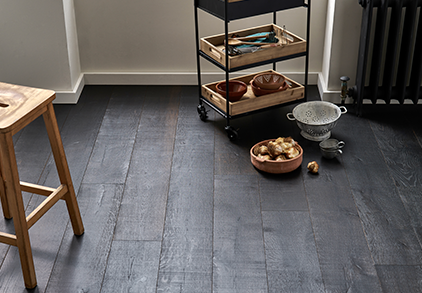
Berkeley Cellar Oak
Berkeley Cellar Oak is distressed, dark, and distinctive; perfect for those who want to make a statement in their home. Deep ebony undertones and all the character of aged extra rustic oak combine to create a board that speaks of generations of wear, reinforced by marks, scuffs, and dents that tell the story of a reclaimed aged timber design. Discover new details in every board each day with this beautifully authentic engineered floor.

